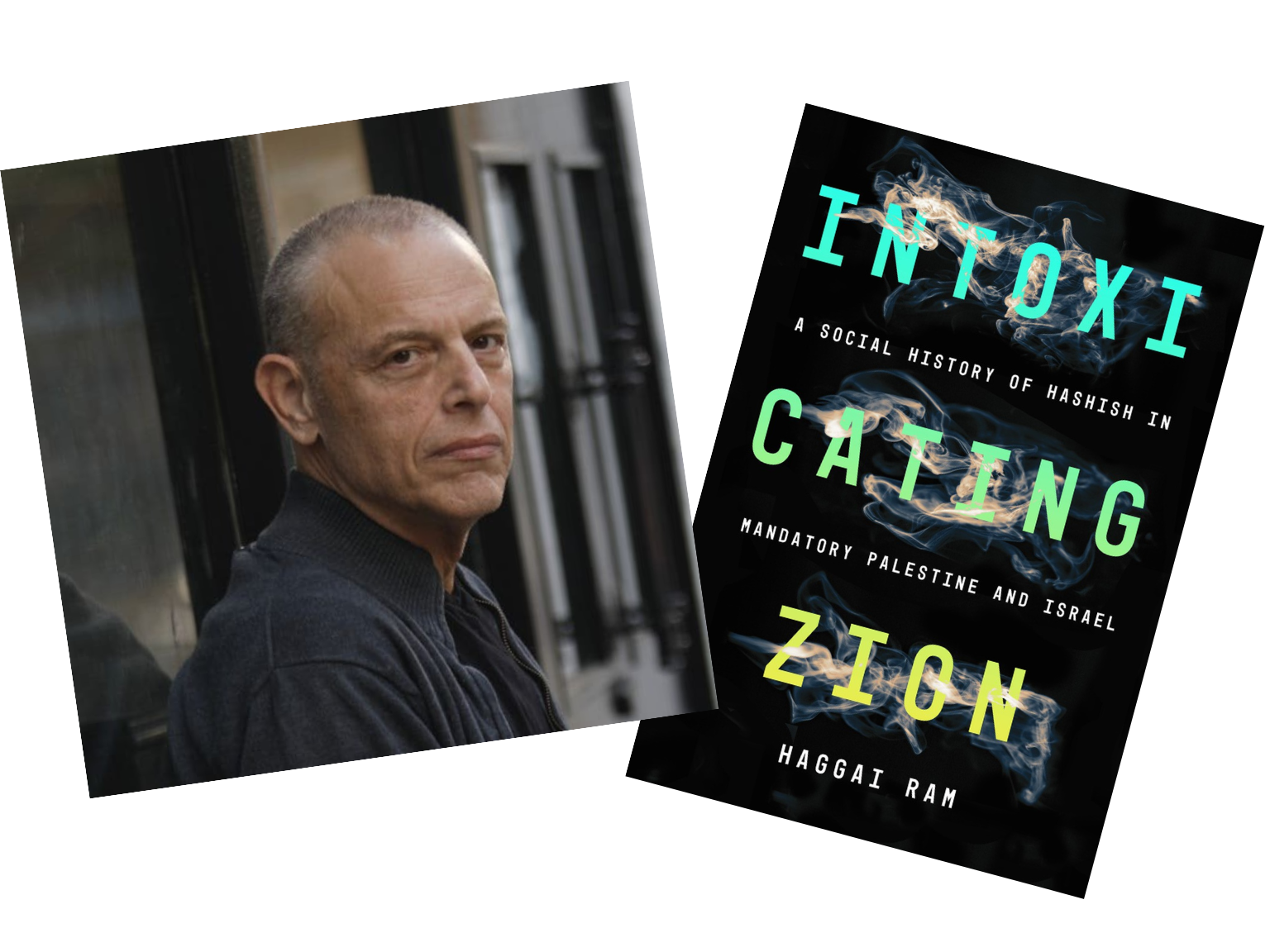Haggai Ram
Haggai Ram, author of Intoxicating Zion: A Social History of Hashish in Mandatory Palestine and Israel (Stanford University Press, 2020).
Why did you write this book? / How did you come to writing this book?
"For the greater part of my career, I have been a social and cultural historian of modern Iran. In due time, I became increasingly aware that methodological nationalisms may not be the most appropriate approach to doing history, because – to quote Sven Beckert’s Empire of Cotton (2015) – "by assuming national perspectives, historians have often underemphasized connections that transcend state borders, settling for explanations that can be drawn from events, people and processes within particular territories." Realizing that this kind of compartmentalization of history means that the parallels, entanglements, and connections that contributed to shaping the modern world cannot come into view, I set out to research Israel’s understandings and conceptualizations of pre- and post-1979 Iran through a cultural transnational approach. This research culminated in my 2009 book Iranophobia: The Logic of an Israeli Obsession (Stanford University Press). Inspired by works that read metropolitan and colonial cultures as zones of encounter, the book demonstrated that Israeli anxieties about Iran have been fashioned and comprehended on the basis of what the Israeli dominant classes believed to be the (dis)ordering of their society at home.
In the meantime, I accidentally came across historical scholarship on various stimulants – cannabis, opiates, cocaine, but also tobacco and coffee – in several spaces and temporalities. Part of what historian Paul Gootenberg described as “the new drug history” emerging since the 1990s, these interventions explored the history of drugs (as well as the practices, ideas, and persons associated with them) as intrinsic to larger connected realms of cross-border politics, economics, and culture that cannot be studied adequately if we privilege the state as the exclusive category of analysis. Having taken some more time to thoroughly acquaint myself with this literature, I discovered that it offered exciting observations about societies across the Americas, Europe, Asia, and Africa; and that of late there has been a barrage of monographs, articles, and dissertations on drugs in different Middle Eastern and North African contexts. Yet to date, no historical study of drugs in Palestine-Israel has been undertaken. Although we know quite a lot about the history of criminalized drugs in other parts of the British Empire (most notably India and Egypt), we know very little about this history in Mandatory Palestine. Similarly, very little academic attention has been paid thus far to the links between hashish use, trafficking, and regulation in the State of Israel. My book, then, is the first study to fully explore the history of hashish as a criminalized drug in Palestine-Israel, and it presents a first-of-a-kind window through which one can explore broader political, economic, social, and cultural change."
What did you learn from writing this book?
"I learned several things, but mainly three: First, that the transition from the Ottoman Empire to the Mandatory period, and then to the State of Israel, were not epochal breakpoints in history. In addition to the persistence of the political and cultural horizons of the country's Jewish and Arab inhabitants (discussed in earlier scholarship), there were trends of continuity in the workings of regional drug networks, criminality, and drug culture which survived these transitions, albeit in transfigured forms.
Second, that the forces at play in the rise of hashish culture in Palestine-Israel cannot be separated from extraneous processes across the world – in the Levant, Europe and the U.S. Palestine-Israel was situated in the region and the wider world; and the latter two, in turn, reached deep into it, penetrating and shaping it in matters concerning hashish commodity chains, hashish consumption, and the understandings of the drug itself.
Third, that our understandings of hashish (in Palestine-Israel and beyond) are ridden with class, racial-ethnic, and gendered desires and anxieties that date back to the late nineteenth century; that biased and fanciful colonial agendas and worldviews, often couched in "neutral" scientific language, played a pivotal role in determining global positions and policies regarding cannabis. With respect to Palestine-Israel, the prohibition of hashish was based on perceptions of hashish as a form of backwardness linked to living among Arabs in the Middle East, a vice that would expose Jewish bodies most perilously to the temptations of an alien space."
Haggai Ram is a Professor of Middle East History at Ben Gurion University. He is the author of Myth and Mobilization in Revolutionary Iran (1994) and Iranophobia: The Logic of an Israeli Obsession (Stanford, 2009).



